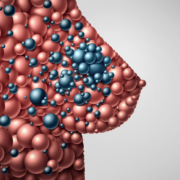15 April 2018
Press coverage of a study recently published in the journal Science Translational Medicine has raised a lot of eyebrows and may be causing unnecessary worry in patients. The headline in USA Today noted “Healing process after breast cancer surgery may trigger cancer to spread, study says.”
Not mentioned in the headline: the study was performed in mice. Mice were injected with breast cancer cells, developed tumors, and then underwent a surgical procedure to implant a small sponge, I presume similar to the surgical gauze that is used in the operating room. Note – the mice did not have traditional breast cancer surgery. The study found that the mice that underwent the surgical procedure had a higher rate of developing metastatic breast cancer – spread to other organs of the body. They also found that when mice received anti-inflammatory agents (meloxicam – brand name Mobic – was used in the study), they had a lower rate of developing metastatic disease.
It is well known that surgery can cause an inflammatory response and alteration in immune system function.. It is not entirely clear what that means for the average patient undergoing breast cancer surgery, and we certainly do not see metastatic disease develop in the majority of patients treated with surgery. If inadvertently left behind in a surgical wound (a very rare event), surgical gauze causes significant swelling, pain, inflammation and often infection – not at all similar to the healing process from lumpectomy or mastectomy. We cannot make assumptions from this mouse study if the use of anti-inflammatory agents after surgery would be helpful in human patients.
The take-home point for me is from my quote in the Stat News coverage: “I do not know if this mimics the potential effect of a lumpectomy or mastectomy, but the inflammatory response to an implanted foreign body would be expected to be quite robust,” said UCLA’s Dr. Deanna Attai, a past president of the American Society of Breast Surgeons. That inflammation, not surgery, might be awakening dormant cancer cells. Nevertheless, she said, “this study and the handful of others like it certainly are interesting and warrant further study.”
Until we have more information, and studies in humans with breast cancer, breast cancer surgery remains an important component of treatment.







